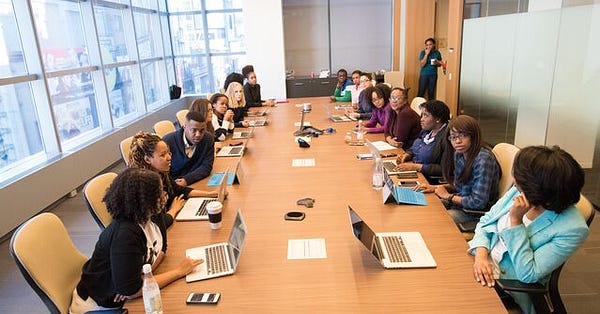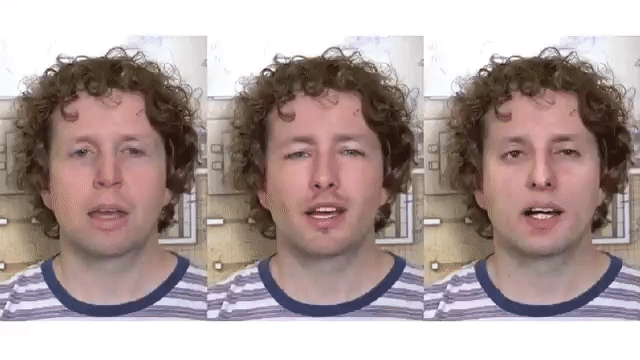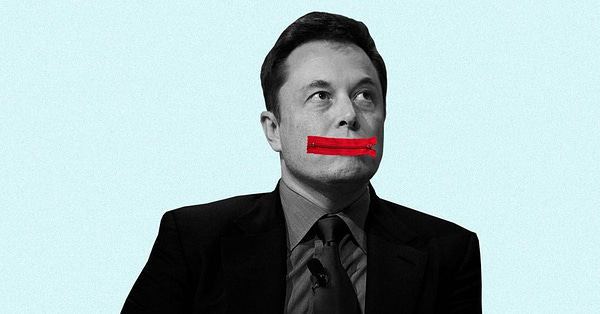Whatever Next #6: Psychological Safety isn’t about being nice
About DIB, psychological safety, privacy in analytics, workplace pressure, thinking slow, sleeping better, and many more.
Hi @ll! I hope you’re all safe in these uncertain times. Welcome to my humble newsletter, where I will be sharing different topics that I found interesting.
Opinions and selection of topics are my own.
Before starting, I apologize for the last newsletter delays. This publication number was by far the most difficult writing I ever did, and I had to cut the number of sections because it was getting very large. I hope I’ll get back on track, or I’ll consider making changes. Thanks for your patience.
🦺 Psychological Safety
It was two weeks ago when I found this tweet (and article on Psychology Today) from Amy Edmondson, Ph.D., HBS professor, and book author of The Fearless Organization: Creating Psychological Safety in the Workplace for Learning, Innovation, and Growth.


My 120 character tweet summary just highlighted some of the points shared inside: “Leaders who care about diversity must care about psychological safety, just as those who care about psychological safety must also care about diversity, inclusion, and belonging".
In the article, Amy shares that “although diversity can be created through deliberate hiring practices, inclusion does not automatically follow”. That makes sense, and I think it is very important to remember. So, following the article, the goal is to “build an inclusive organization that realizes the benefits of diversity through greater inclusion and belonging”.
Also, I never saw DIB as an acronym standing for Diversity, Inclusion, and Belonging.
Psychological safety is a very interesting topic. As you may read also in the article: “psychological safety is about enabling candor”, linking to another article that referred to Kim Scott’s book Radical Candor. In her book (only in the Revised Edition!), Kim quotes Amy’s definition of psychological safety as “a shared belief that the team is safe for interpersonal risk-taking” when talking about feedback. Kim also shared there that Google’s People Operations found it one of the 5 key dynamics for successful teams. And maybe the most important.
Amy Edmondson is said to be the first who identified the concept of psychological safety in work teams. She defends that “psychological safety isn’t about being nice. It’s about giving candid feedback, openly admitting mistakes, and learning from each other”. Also, argues about the increasing importance of organizational culture, not only in companies but thinking in the modern economy.
This topic worth a complete newsletter or blog post series. Before leaving this topic, I want to share with you a TEDx video about “Building a psychologically safe workplace” with Amy Edmonson. I hope you’ll enjoy it!
🚫 Safari’s privacy and Google Analytics controversial
In my previous newsletter, I found some applications focused on privacy, and I shared the example of the DuckDuckGo search engine and the trending Hey email App. With the recent WWDC, Apple shared what was understood as a new functionality to block trackers, including Google Analytics.
In Europe, with the GDPR, we are unable to store any kind of information that can help to identify a visitor or customer without its approval. Browsers have been improving their privacy settings, but this sounded weird to me.
As you could read here, it was clarified that this is not going to happen. When a domain is flagged as a cross-site tracking domain, Safari implements protective measures limiting communication of personal information to and from that domain. As Google Analytics is not designed to collect information that can be used to identify individual users (generally speaking), it will work as always on the new version of Safari.
But, what happens if browsers begin blocking GA due to privacy issues? Is this an unreal and impossible future? Could this information tracked by GA be used to identify people? There is no smoke without fire, so should people in a close future prepare to track customer navigation on their own?
🙇 Workforce under the mental burden
This section is probably related to the first topic “psychological safety”. Please, have a look at this tweet:

I was initially a bit surprised by it. But I quickly remembered that leaving a high-pressure or high-demanding workplace ends with an unburden and load-off feeling. But the thread was just starting, it even turns out better…

“Ashamed to tell people where you work”… That’s pretty heavy, don’t you think? Well, seems that this is not only happening on Facebook but also in other social media big players.

Don’t get me wrong, I am not telling you that Sebastian or Ben are exaggerating. I don’t know them, I never worked at Facebook, Twitter, or any other Social Media big player, and even if I could imagine the pressure (social, political, etc), I shouldn’t talk as I already know about the experience and conditions. I am just sharing their public thoughts and opinion. They would probably say that they left following their principles, which is a fully respectable decision.
What I am thinking about is how an employee could feel this weight over its shoulders? And I was wondering what tools does a company like Facebook has to help them, how it works, or in this case, why didn’t work. From a manager's point of view, how they use to manage that kind of burnout somehow pushed by public opinion and media? I feel very curious about this because of the recent political controversy where people were publicly asking Facebook employees to quit.
Truth to be told, according to Glassdoor, which is based on employee anonymous review, Facebook is still on the top. On the year 2018 ranked 1st as Best Place To Work, next year fall into 7th position, and this year is on 23rd due probably to political controversy. Other well-known companies like Amazon didn’t make the list.
🧠 Thinking fast and thinking slow
Adam Grant is an American psychologist and author who is currently a professor at the Wharton School of the University of Pennsylvania specializing in organizational psychology. Some days ago, he published the following tweet:

I saw it by chance and I remembered another article that I had read some days ago, with a similar approach.
The slow and deep thinking evolves to awkward silence, but it means the same. Less intuition and more thinking. But it is bad to trust in our intuition? As Daniel Kahneman said, intuition is based on recognition, and it is often right. There are situations where our intuition is more likely to be right than others.
And this brings me to his best-seller book, Thinking, Fast and Slow. Curiously, Daniel is a world-renowned psychologist who won the Nobel prize award in Economics. In his book, Daniel explains that we all have two different “systems”. The first is the fast and instinctive thinking system, and the second is the slow thinking one, more deliberative, and requires more attention and effort. It turns out that our thoughts and actions vary depending on which of the two systems is in control of our brain at that time.
This newsletter is plenty of videos… In any case, this is a very complete video from the Talks at Google:
🚘 Autonomous driving workshop with Andrej Karpathy
As you may see here, this workshop was shared by Nando de Freitas, principal scientist at Google DeepMind.


Andrej Karpathy is the Director of AI at Tesla. In this keynote, he introduces Tesla’s autopilot, and how it approaches and solves problems in a way a human would do, which is very cool.
When you have the opportunity to think about the classification of images you realize the craziness that it is to label them for any country, any format. It is interesting to see that they spend as much time on the test data as training data, inspired by test-driven development. You have to figure out that they have to be very strict because validation ends in a release to the world.
Still lots of challenges in autonomous driving, lots of “needles” to be discovered. If you’re interested in autonomous driving, you’ll enjoy it.
💤 Handling with sleep debt
This is the latest blog post from Dr. Michael Breus, the Sleep Doctor. We all know, or at least have heard once, that our mind and body needs eight hours of sleep each night.
Studies show that the average sleep is less than 6 hours, and sleep debt can be dangerous. This post is not about the dangers, which are also explained, but to bring solutions.
Spoiler alert: There are small chances for all of us to pay off sleep debt during weekends, and the solutions provided aren’t magical. What is important here is to realize how sleep affects our health and based on that, consider making changes.
Also, if you need another opinion about this topic from an authorized voice, you’ll find interesting this Bill Gates book review about “Why we sleep” from Matthew Walker. You may remember Bill from coronavirus pandemic, microchip complot, 5G, and other conspiracy theories. Just kidding, sorry Mr. Gates.
Another source of good recommendations is Jim Kwik, a celebrity brain trainer. Here you’ll find tips to sleep better.
😲 Face swapping, more than deepfake videos
This could be in a “curiosities” section, but the quality of the output is enough to give it an entire section.


I remember seeing deepfake videos some months ago, exchanging the face of Arnold Schwarzenegger with Sylvester Stallone‘s. It was funny, but it looked fake. Evolution around deep learning is going to change it from funny to amazing and seriously intimidating.
In this case, they have developed an unsupervised deep learning method for generating high definition photo-realistic transfers
I imagine that this could change the film and TV industry, where expensive reshooting scenes and post-production fx could be avoided. But as you see reading the tweet answers, evolution is scary.

Evolution is scary. However, the thought of going extinct because you refused to change should be more terrifying.
Mark Anthony Peterson, Guerrillapreneur: Small Business Strategy For Davids Wanting To Defeat Goliaths
🎁 Curiosities
Some weeks ago, David Bonilla shared on twitter this game which I found amazing. If you always wanted to learn or relearn about regular expressions (RegEx), this is the right game for you: Slash\Escape! As they highlight on their website, “The first and only slasher themed text-based RegEx learning game”.
I couldn’t finish without showing another website from the past, and again, it is Amazon, but the very first. Look at the logo!
And… That’s it! If you arrived here, thanks for reading. I hope you like it!
Please, do not hesitate to add any comments. I am open to any suggestion so if you want to add a comment or contact me, I encourage you to do it.
And if you found it interesting, don't save, share!!









Hi @ll! For those who are interested in psychological safety, there's an interview from HBR Ideacast podcast that you may find interesting: https://hbr.org/podcast/2019/01/creating-psychological-safety-in-the-workplace